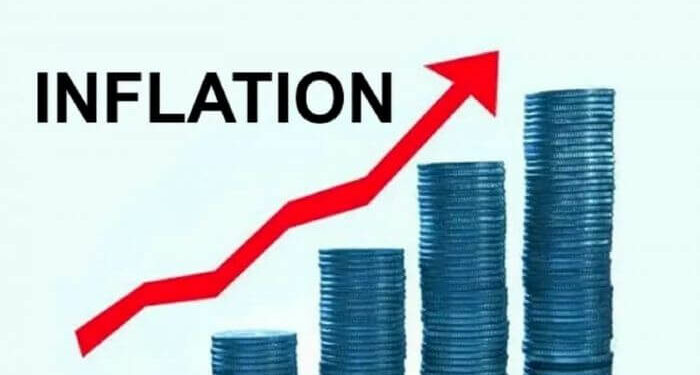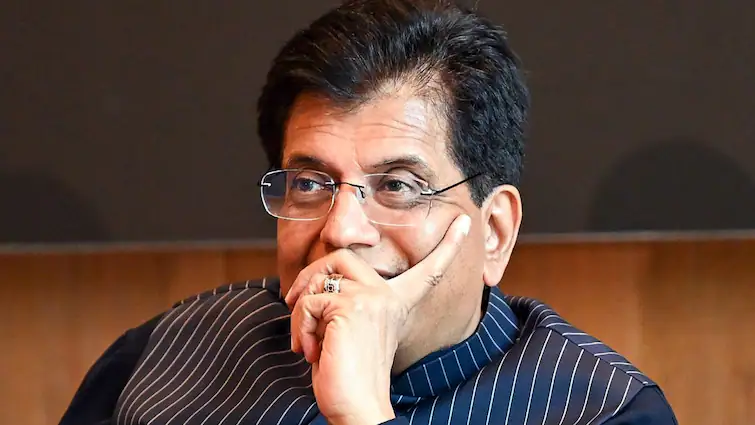By Bizwatch Nigeria Limited,Toyin Akande
Copyright bizwatchnigeria

Nigeria’s headline inflation slowed for the fifth straight month in August, easing to 20.12 per cent from 21.88 per cent in July. While the National Bureau of Statistics (NBS) described the decline as a sign of moderating price growth, households, small businesses, and industry leaders say the relief remains largely statistical, as prices remain high and demand continues to weaken.
According to the NBS Consumer Price Index report released on Monday, the slowdown represents a 1.76 percentage point drop month-on-month and a sharp fall from the 32.15 per cent recorded in August 2024. The CPI rose slightly to 126.8 points in August from 125.9 in July, while monthly inflation stood at 0.74 per cent compared to 1.99 per cent the previous month.
Urban inflation slowed to 19.75 per cent year-on-year from 34.58 per cent in August 2024, while rural inflation was 20.28 per cent compared to 29.95 per cent a year earlier. On a monthly basis, urban inflation rose 0.49 per cent, while rural inflation climbed by 1.38 per cent, showing sharper pressures in rural communities where insecurity, transport costs, and supply challenges remain high.
Food inflation, which carries the biggest weight in the basket, eased to 21.87 per cent year-on-year from 37.52 per cent in August 2024. On a monthly basis, it dropped to 1.65 per cent from 3.12 per cent in July, driven by falling prices of staples such as rice, maize flour, millet, semolina, and guinea corn. Still, food prices remain elevated, particularly in northern states grappling with insecurity and poor logistics.
Core inflation, which strips out food and energy, slowed to 20.33 per cent year-on-year from 27.58 per cent a year ago, though it rose month-on-month to 1.43 per cent from 0.97 per cent, reflecting cost pressures in housing, electricity, transport, education, and healthcare.
Inflation patterns varied across states: Ekiti posted the highest rate at 28.17 per cent, followed by Kano at 27.27 per cent. Zamfara recorded the lowest at 11.82 per cent. Food inflation was highest in Borno at 36.67 per cent, while Zamfara posted the lowest at 3.30 per cent.
Small businesses feel no reliefFor small businesses and households, the easing inflation figures have not translated into lower costs. President of the Association of Small Business Owners of Nigeria, Femi Egbesola, said, “Small businesses and households have little or nothing to do with the macroeconomy. They don’t care what the figures say; they care about what they can feel in their livelihood.”
He urged government to provide targeted support in food, transport, and credit, warning that without urgent interventions, the micro, small, and medium enterprise (MSME) sector — which employs over 80 per cent of Nigeria’s workforce — could be pushed closer to collapse.
Director-General of the Nigerian Association of Small and Medium Enterprises, Eke Ubiji, added, “From the perspective of SMEs, nothing is dropping. What is happening in the market does not correspond with the statistics. One could take ₦50,000 to the market and exhaust it without buying everything.”
He noted that many businesses are scaling back on inputs, raw materials, and equipment because of weak demand and high costs.
Private sector leaders urge cautionOrganised Private Sector leaders welcomed the disinflation trend but warned that it should not be mistaken for falling prices. President of the Lagos Chamber of Commerce and Industry, Gabriel Idahosa, explained, “Inflation dropping to 20.12 per cent does not mean that absolute prices of goods are falling. Falling prices will only come when supply increases significantly and post-harvest losses reduce.”
Segun Kuti-George, National Vice President of the National Association of Small-Scale Industrialists, added that prices in Nigeria are sticky. “When prices go up, they rarely come down because producers and sellers hold on unless competition forces them to adjust,” he said.
Director of the Centre for the Promotion of Private Enterprise, Muda Yusuf, described the slowdown as a sign of macroeconomic improvement and rising investor confidence but stressed that insecurity and food costs remain critical risks.
Experts weigh inEconomic analysts also cautioned against over-celebrating. Charles Sanni, Chief Executive of Cowry Treasurers Limited, said the moderation reflects both macro stability and weak demand. “Consumer demand has shrunk, foreign reserves have improved, and the naira has been appreciating. These are positives, but prices are still high,” he explained.
Olatunde Amolegbe, CEO of Arthur Stevens Asset Management Limited, added that inflation must be understood as an aggregate. “Some items are up, others are down. Pre-harvest, food prices rise; post-harvest, they fall. But overall, prices may still be higher than last year,” he noted.
Looking aheadThe data was released ahead of the Central Bank of Nigeria’s Monetary Policy Committee meeting scheduled for September 22–23. Analysts say while five consecutive months of disinflation could give the MPC room to ease policy, persistent food and core inflation may push it to hold interest rates at 27.5 per cent.
Nigeria’s inflation remains one of the highest in Africa despite recent improvements. The moderation offers a glimmer of stability but has yet to ease the burden on households and businesses. Private sector leaders and analysts insist government must go beyond statistical gains to address structural bottlenecks — insecurity, power shortages, poor logistics, and weak infrastructure.
Until then, the gap between official data and lived realities will remain. For many Nigerians, inflation may be slowing, but survival is still an uphill battle.



